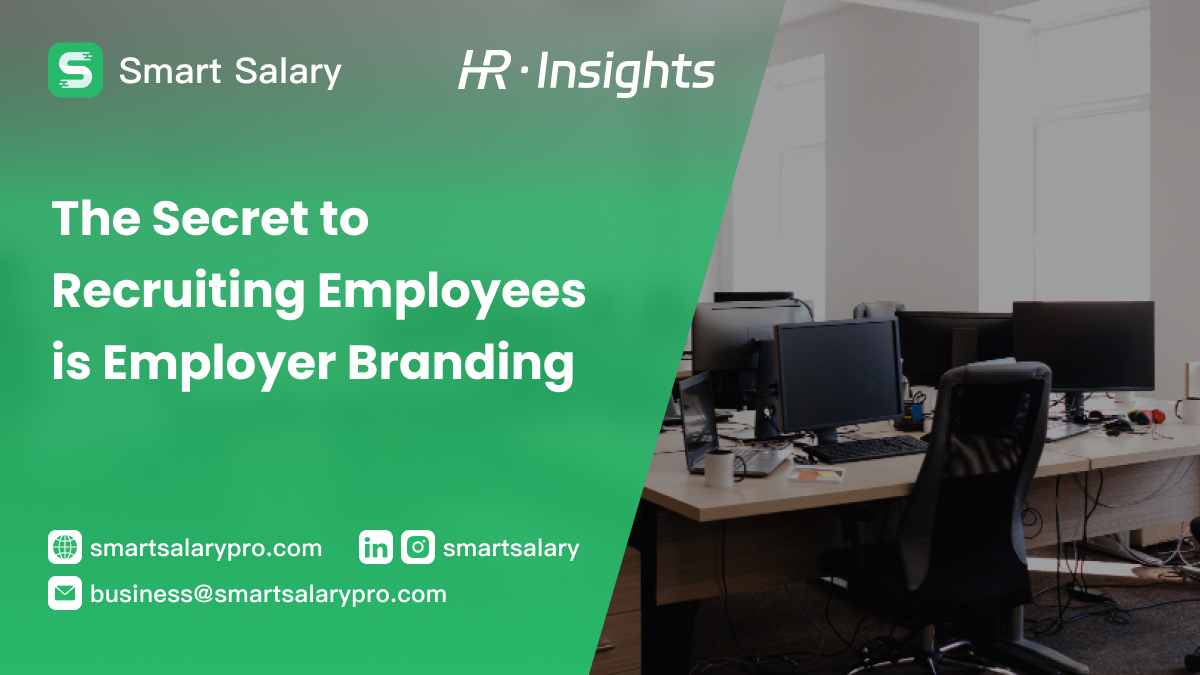Too long to read?
Let ChatGPT summarize this Smart Salary article for you in seconds.
In recent conversations with HR leaders and business owners, two questions keep coming up:
-
“Why does our company always struggle to hire?”
-
“Why do candidates lose interest halfway through the process?”
The reality is that recruiting has always been one of the toughest challenges for businesses. In today’s competitive market, attracting and retaining talent requires more than just posting a job ad.
What Candidates Really Care About
From both the recruiter’s and the candidate’s perspective, compensation and career growth are still the main priorities. Candidates want to know:
- The purpose and impact of the role
- Opportunities for career development
- Scope of responsibilities
- Competitive pay and benefits
But there’s another factor many employers overlook: company culture and values. For today’s workforce, culture can be just as important as salary.
Why Candidates Drop Out
It’s common for job seekers to be excited by an initial posting, only to lose interest after the interview or salary discussion. This gap often happens when job ads oversell and interviews underdeliver.
Examples candidates often share include:
- “Flexible hours” that really mean unpaid overtime
- Salary ranges that look generous, but hide low base pay and vague commission structures
- Perks like “free snacks” presented as the company’s biggest benefit
These inconsistencies leave candidates feeling misled, damaging employer reputation in the process.
Building Trust with Better Job Posts
To attract the right people while keeping trust intact, companies should focus on three essentials before publishing a job ad:
- Industry research – Understand market demand, talent availability, and competitive benchmarks.
- Job value assessment – Clearly define the role’s responsibilities and career trajectory.
- Salary system optimization – Offer transparent, competitive pay that reflects both the candidate’s value and company goals.
Interviews: A Two-Way Street
An interview isn’t just for evaluating the candidate—it’s also when the candidate evaluates the company. Everything from office environment to employee energy to leadership style shapes their perception.
During interviews, candidates tend to focus on three areas:
- Industry prospects – Is this a growing sector?
- Company and position – Is there a clear business direction and transparent promotion path?
- Salary and benefits – Does the pay structure match what was advertised?
A solid salary system, where base pay reflects the individual’s worth and incentives reward contributions, is key to maintaining trust.
The Offer Stage: Beyond Salary
Once an offer is made, salary and benefits determine whether a candidate accepts. Traditional perks like office snacks or birthday cakes may be nice, but they don’t win top talent.
What truly matters are benefits aligned with employees’ real needs, such as:
- Paid annual leave and extended vacation days
- Health coverage, gym memberships, or counseling services
- Professional development programs and tuition reimbursement
- Family support, such as parental medical benefits
Given two offers one with higher base pay but no benefits, and one with slightly lower salary but strong development and health packages many candidates will choose the latter.
Final Thoughts
In today’s business environment, the competition for talent is fierce. Companies that win are those that align compensation, career development, and corporate culture into a clear, attractive package.
At Smart Salary, we believe that a well-structured HRIS system plays a critical role in this process. By helping companies design transparent payroll systems, streamline recruitment, and strengthen employee experience, Smart Salary HRIS makes it easier to attract and retain the people who drive growth.
If your organization is facing recruitment challenges, let’s talk about how Smart Salary can help.




